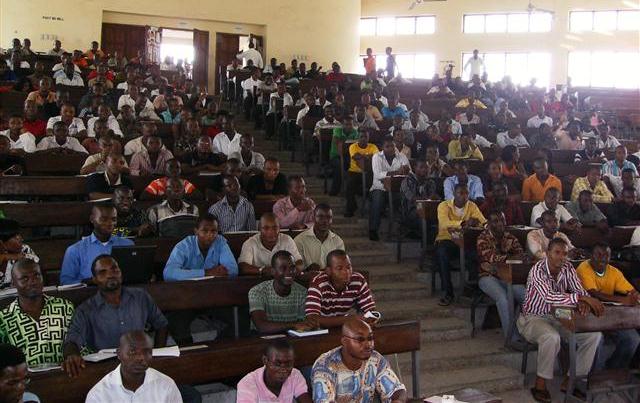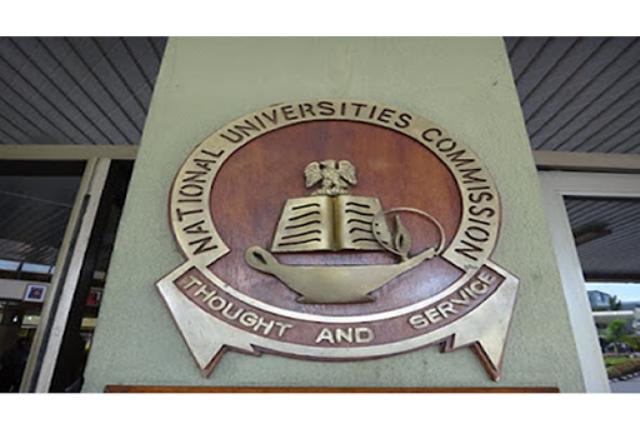Sequel to the rising numbers of illegal degree and post-graduate awarding institutions in the country, the National Universities Commission (NUC) has released a list of government approved post-graduate awarding universities in Nigeria.
A bulletin issued on Monday from the office of the Executive Secretary dated May 14 contains the list of federal, state and private universities currently allowed to issue such certificates to students in Nigeria.
“The commission has also observed some parastatals and institutes awarding these same postgraduate degrees, either on their own or through unapproved affiliation with Nigerian and foreign universities,” the bulletin said.
According to the commission, such practices are not only unethical, “but also antithetical to time -tested quality assurance best practices”.
“The Commission hereby notifies the general public that only the following universities have approval to offer postgraduate programmes at the Masters’ and Ph.D levels in Nigeria as of July 30,2012,” the bulletin said.
According to the bulletin, Nigeria has 162 universities: 41 are federal, 47 are state owned while 74 are privately owned institutions.
Out of the 41 federal universities across the country, 26 are approved by the commission for post-graduate programmes:
- Abubakar Tafawa Balewa University, Bauchi
- Ahmodu Bello University, Zaria
- Bayero University, Kano
- Federal University of Technology, Akure
- Federal University of Technology, Minna
- Federal University of Technology, Owerri
- Micheal Okpara University of Agriculture, Umudike
- Modibbo Adama University of Technology, Yola
- National Open University of Nigeria, Lagos
- Nigeria Defence Academy, Kaduna
- Nnamdi Azikwe University, Akwa
- Obafemi Awolowo University, Ile Ife
- University of Abuja, Gwagwalada
- University of Agriculture, Abeokuta
- University of Agriculture, Makurdi
- University of Benin, Benin City
- University of Calabar, Calabar
- University of Ibadan, Ibadan
- University of Ilorin, Ilorin
- University of Jos, Jos
- University of Lagos, Akoka
- University of Maiduguri, Maiduguri
- University of Nigeria, Nsukka
- University of Port Harcourt, Port Harcourt
- University of Uyo, Uyo
- Usmanu Dan Fodio University, Sokoto
Similarly, only 25 state universities were approved by the commission for post-graduate programmes out of the 47 state owned universities in the country. The approved universities are :
- Abia State University, Uturu
- Adamawa State University, Mubi
- Adekunle Ajasin University, Akungba Akoko
- Ambrose Alli University, Ekpoma
- Anambra University, Uli
- Benue State University, Makurdi
- Cross River University of Technology, Calabar
- Delta State University, Abraka
- Ebonyi State University, Abakaliki
- Ekiti State University, Ado Ekiti
- Enugu State University of Science and Technology, Enugu
- Imo State University, Owerri
- Kogi State University, Anyigba
- Ladoke Akintola University of Technology, Ogbomoso
- Lagos State University, Ojo
- Nasarawa State University, Keffi
- Niger Delta University, Wilberforce Island
- Olabisi Onabanjo University, Ago Iwoye
- Rivers State University of Science and Technology
- Umar Musa Yar’Adua University, Katsina
- Gombe State University, Gombe
- Ibrahim Babangida University, Lapai
- Kano State University of Science and Technology
- Kebbi State University of Science and Technology
- Kwara State University, Malete
Meanwhile, only 18 universities out of 74 private universities were approved for post-graduate studies. The 18 institutions are:
- African University of Science and Technology, Abuja
- American University of Nigeria, Yola
- Babcock University, Ilishan Remo
- Benson Idahosa University, Benin City
- Bowen University, Iwo
- Covenant University, Ota
- Igbiniedo University, Okada
- Pan-African University, Lekki
- Redeemer’s University, Mowe, Ogun State
- Caleb University, Lagos
- Joseph Ayo Babalola University, Ikeji-Arakeji
- Nigerian Turkish Nile University, Abuja
- Afe Babalola University, Ado Ekiti, Ekiti State
- Lead City University, Ibadan (MSc. Only)
- University of Mkar, Mkar (MSc. Only)
- Madona University, Okija
- Al-hikmah University, Ilorin (MSc. Only)
- Godfrey Okoye University, Ugwuomu-Nike, Enugu state.
“Employers of labour, educational institutions and other stakeholders are to note that only certificates issued by these universities for their approved programmes, are valid for employment, further studies and other purposes,” the commission said.
The NUC Director of Information and Public Relations, Ibrahim Yakasai, in an interview with newsmen, said all the ‘legal’ universities in Nigeria can actually do post-graduate courses only after meeting certain criteria and conditions of the commission.
According to him, the commission must verify that the institutions have adequate resources which include “physical and human resources.”
“All universities can ‘graduate’ to post-graduate but the universities with approval are those that are matured, (who) applied and have met the requirement and they’ve been allowed to do post-graduate. So, we published the names of the universities who have met the conditions,” he said.
Similarly, an official of the commission who pleaded anonymity explained that there is a document called Benchmark Minimum Academic Standard (BMAS ).
According to the source, the document contains all the minimum requirements before a particular programme or school can be approved or accredited.
“One of the quality assurances of NUC, is to conduct a resource verification of any programme. The commission must go out there to find out whether the particular institution has the minimum number of academic staff that will enable the programme run.
“If they have the minimum required space for students to be admitted into the programme, do they have laboratories, well-equipped libraries and other amenities to make the students comfortable?” the source said.



